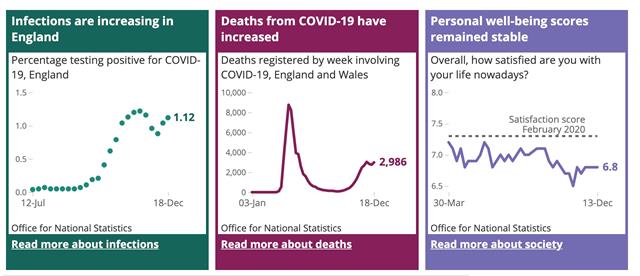 COVID-19 is on the rise in the UK |
As the United Kingdom enters its third national lockdown, the government is warning employers not to put their workers at risk and is urging people to stay at home unless they "cannot reasonably work from home".
A government communique urges employers and employees to discuss their working arrangements.
The lockdown can be expected to have implications for forklift operations, and Tim Waples, chief executive of the UK Material Handling Association, stresses that the Forklift Truck Association (FLTA) will continue to provide support and materials where needed.
"Providing highly targeted and trustworthy advice is something that only a fit-for-purpose trade association can deliver. Uncluttered by political considerations, a good trade association understands the needs and mindset of its various communities, the pressures and issues they face, and the answers they need to function safely and efficiently, especially in a crisis," he says.
He cites the FLTA's Safe User Group as a valuable source of tailored information and resources needed to stay up to date with both safety and best practice.
The lockdown comes shortly after forklift trainer RTITB sought clarity from the Health and Safety Executive (HSE) regarding its guidance around training and COVID-19.
"Although COVID-19 presents new and different concerns for logistics and supply chain businesses, lift truck operations are, by their very nature, risky," explains Laura Nelson, managing director for RTITB. "It is therefore important to balance the full spectrum of risks, managing training safely and looking at ways to improve and maintain safety, such as through eLearning."
The HSE's statement confirms that "it remains the employer's responsibility to not allow anyone to operate lift trucks on any premises without authorisation. Authorisation should only be given where employees have completed suitable training" in line with the HSE Approved Code of Practice (L117) Rider-operated lift trucks: Operator training and safe use, and have achieved an appropriate level of operating ability.
To reduce the risk of COVID-19 transmission, RTITB recommends that employers and training providers should apply a hierarchy of control to manage the risks of training.
Operations should continue to mitigate risk with infection transmission controls such as checking that no-one involved in training is exhibiting COVID-19 symptoms and minimising touch points and shared contact surfaces, such as pens, pointers, or touch screens. They should also ensure access to handwashing facilities and that handwashing is carried out at regular intervals.
RTITB notes that employers and training providers must put systems in place to maintain social distancing, and, in the case of training delivery, this may mean reducing class size where suitable distancing cannot be maintained.
Given that the safety obligations continue despite the lockdown, RTITB urges employers to consider alternative learning methods.
"It is unlikely that the workplace will be 'returning to normal' anytime soon, so we encourage employers to put plans and processes in place now to be in the best position to keep operations running throughout 2021," says Nelson.